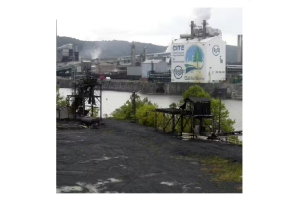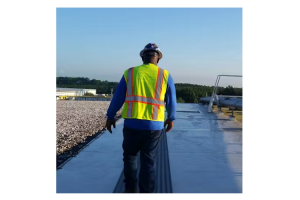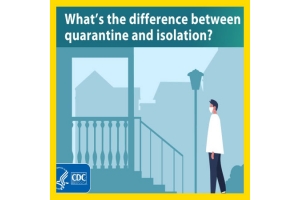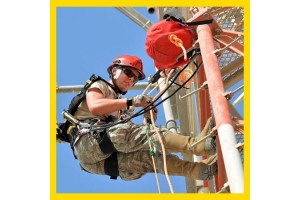Currency
July 05, 2022
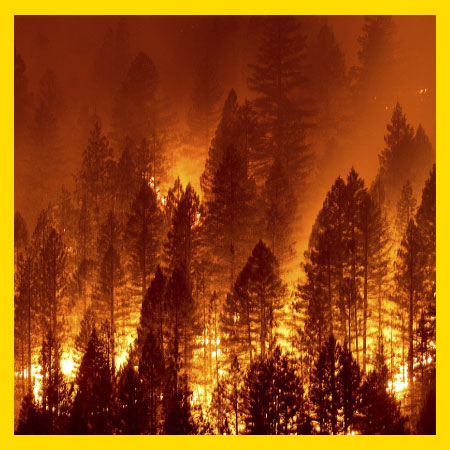
It’s not quite a summer, but wildfire season is already upon us. As a result, West Coast states are taking action to protect workers from exposure to wildfire smoke.
The Washington State Department of Labor & Industries adopted new emergency rules that add to existing protections for outdoor workers from wildfire smoke and heat exposure.
Effective June 15, Washington employers are required to monitor the air quality index (AQI) and take a specific action when workers are exposed to AQI levels of 69 or higher, with additional requirements imposed when AQI is 101-500 and 500 or higher. Employers must also establish hazard communication systems with employees, maintain wildfire smoke response plans, implement training programs for employees and supervisors and monitor employees for symptoms of exposure (and treat as necessary). Washington employers may also be required to provide free respiratory protection at certain AQI levels.

Similarly, Oregon Occupational Safety and Health Administration (Oregon OSHA) has adopted new final rules for heat illness prevention effective June 15 and employee exposure to wildfire smoke effective July 1. The wildfire smoke rule requires employers to take certain safety measures if their employees are exposed or will be exposed to wildfire smoke where the ambient air concentration for fine particulate matter is at or above an AQI value of 101.
If Oregon workers are or are likely to be exposed to AQI of 101 or higher, employers must perform an exposure assessment, provide information and training, develop a two-way communication plan, provide exposure controls, and require respirators if AQI exceeds 251 and require NIOSH-approved respirators if AQI exceeds 501.
California made its wildfire smoke regulation, the first of its kind in the country, permanent in February 2021. Employers are required to provide communication and training on the hazards of wildfire smoke exposure. The regulation states that employers must provide N95 filtering facepiece respirators when AQI is 151 to 500 that employees may choose to wear but is mandatory when AQI exceeds 500.
These protections come following a devastating few years for much of the West and West Coast. Fire season is expanding (see “Why an Early California Wildfire is Cause for Concern”), more areas are in severe droughts and megablazes—fires that blackened more than 100,000 acres—are becoming more common. Those conditions coupled with a warming climate that makes working in heat more dangerous have reinforced the need for increased worker protections.
The Washington State Department of Labor & Industries adopted new emergency rules that add to existing protections for outdoor workers from wildfire smoke and heat exposure.
Effective June 15, Washington employers are required to monitor the air quality index (AQI) and take a specific action when workers are exposed to AQI levels of 69 or higher, with additional requirements imposed when AQI is 101-500 and 500 or higher. Employers must also establish hazard communication systems with employees, maintain wildfire smoke response plans, implement training programs for employees and supervisors and monitor employees for symptoms of exposure (and treat as necessary). Washington employers may also be required to provide free respiratory protection at certain AQI levels.

Similarly, Oregon Occupational Safety and Health Administration (Oregon OSHA) has adopted new final rules for heat illness prevention effective June 15 and employee exposure to wildfire smoke effective July 1. The wildfire smoke rule requires employers to take certain safety measures if their employees are exposed or will be exposed to wildfire smoke where the ambient air concentration for fine particulate matter is at or above an AQI value of 101.
If Oregon workers are or are likely to be exposed to AQI of 101 or higher, employers must perform an exposure assessment, provide information and training, develop a two-way communication plan, provide exposure controls, and require respirators if AQI exceeds 251 and require NIOSH-approved respirators if AQI exceeds 501.
California made its wildfire smoke regulation, the first of its kind in the country, permanent in February 2021. Employers are required to provide communication and training on the hazards of wildfire smoke exposure. The regulation states that employers must provide N95 filtering facepiece respirators when AQI is 151 to 500 that employees may choose to wear but is mandatory when AQI exceeds 500.
These protections come following a devastating few years for much of the West and West Coast. Fire season is expanding (see “Why an Early California Wildfire is Cause for Concern”), more areas are in severe droughts and megablazes—fires that blackened more than 100,000 acres—are becoming more common. Those conditions coupled with a warming climate that makes working in heat more dangerous have reinforced the need for increased worker protections.

